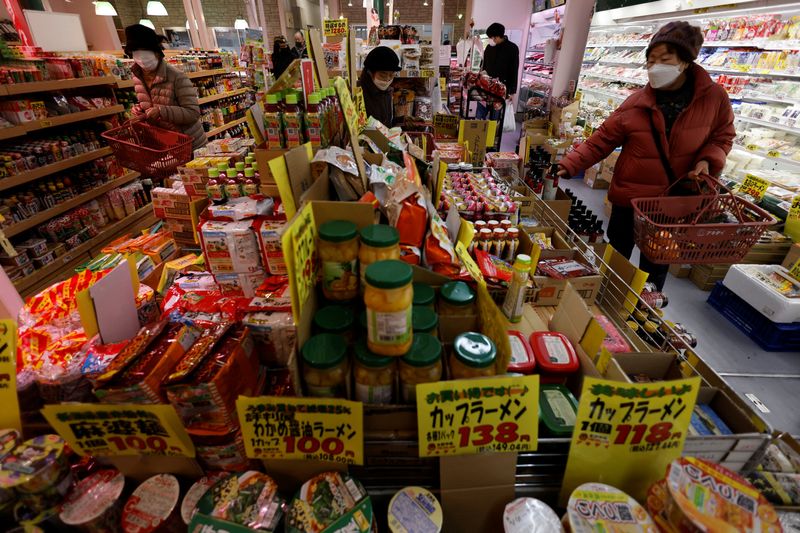By Leika Kihara
TOKYO (Reuters) -Japan's wholesale inflation slowed for a fourth straight month in April as rises in raw material costs moderated, data showed on Monday, suggesting that consumer inflation will begin to ease back towards the central bank's 2% target.
The data may diminish market expectations that broadening inflationary pressure will prod the Bank of Japan to seek an early exit from ultra-low interest rates.
The corporate goods price index (CGPI), which measures the price companies charge each other for their goods and services, rose 5.8% in April from a year earlier, slowing its annual pace of increase for the fourth straight month, BOJ data showed.
The increase exceeded a median market forecast for a 5.4% gain and followed a 7.4% rise in March.
"Many firms have yet to fully pass on past rises in input costs. We also might see companies hike prices to translate higher labour costs given big wage hikes they've agreed to in this year's wage negotiations with unions," said Takeshi Minami, chief economist at Norinchukin Research Institute.
"Having said that, we'll likely see price growth slow as import-driven inflationary pressure is already subsiding."
The yen-denominated import price index fell 2.9% in April from a year earlier after a revised 9.6% gain in March, the data showed, a sign the cost of importing fuel and raw material was peaking.
Analysts are closely watching moves in wholesale prices, considered a leading indicator of consumer price trends, for clues on whether consumer inflation will heighten enough for the BOJ to phase out its massive stimulus.

Japan's core consumer inflation hit 3.1% in March and an index excluding fuel costs rose at the fastest annual pace in four decades in a sign of broadening price pressure.
BOJ Governor Kazuo Ueda has said the central bank will keep monetary policy ultra-loose unless the recent rise in consumer inflation is driven more by robust domestic demand, and accompanied by higher wage growth.